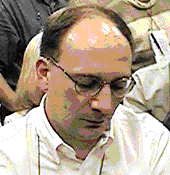
Here is a presentation by David Eaves (from three years ago), on the importance of collaboration, facilitation, and conflict resolution skills for successful free and open source software and content projects (as well as the need for better on-line tools to support all that):
“Community Management Presentation”
His key point is that “facilitation” (enabling the community) is an essential part of open source software collaborations or open content collaborations, and that we have not prioritized for “facilitation” either in who runs such projects, the companies built around them, how people are trained, or what our online tools are actually good at supporting.
He makes a point that (in round numbers) written text over the web only conveys about 10% of human communication intent, with about another 40% being intonation and the last 50% being body language (so, 90%+ of communicated intent is lost by using text).
He says this is a reason a lot of web communications go wrong with various emotional-related misinterpretations of what people wrote, especially when people have no common face-to-face history together. He presents a model of negotiation where people build “relationship” and “communication”, and then iteratively explore “interests”, “options” to pursue those interests, and “legitimacy” (or likelihood an option will succeed) to find common ground they can work together on as a “commitment” instead of pursuing “alternatives” to the collaboration.
He contrasts that with a competitive up-front take-it-or-leave it style of advocacy for specific actions by others (a style which does not first explore broader common interests that are behind why the specific actions are desired, where common ground might be easier to find by taking a step back from the specific apparent conflict to see a bigger picture of common interests and creative ways to pursue those together).
He suggests that every conversation has four aspects (Inquire, Paraphrase, Acknowledge, and Advocate) and says people spend too much time on “Advocate” to the exclusion of these other important aspects and related skills. In general, he suggests these communications issues are why so many free and open source projects have problems and that we need better tools to support this sort of facilitation across all aspects of a project (coding, marketing, fundraising, tracking defects, providing support, etc.).
See Also:
Worth a Look: Institute for 21st Century Agoras



